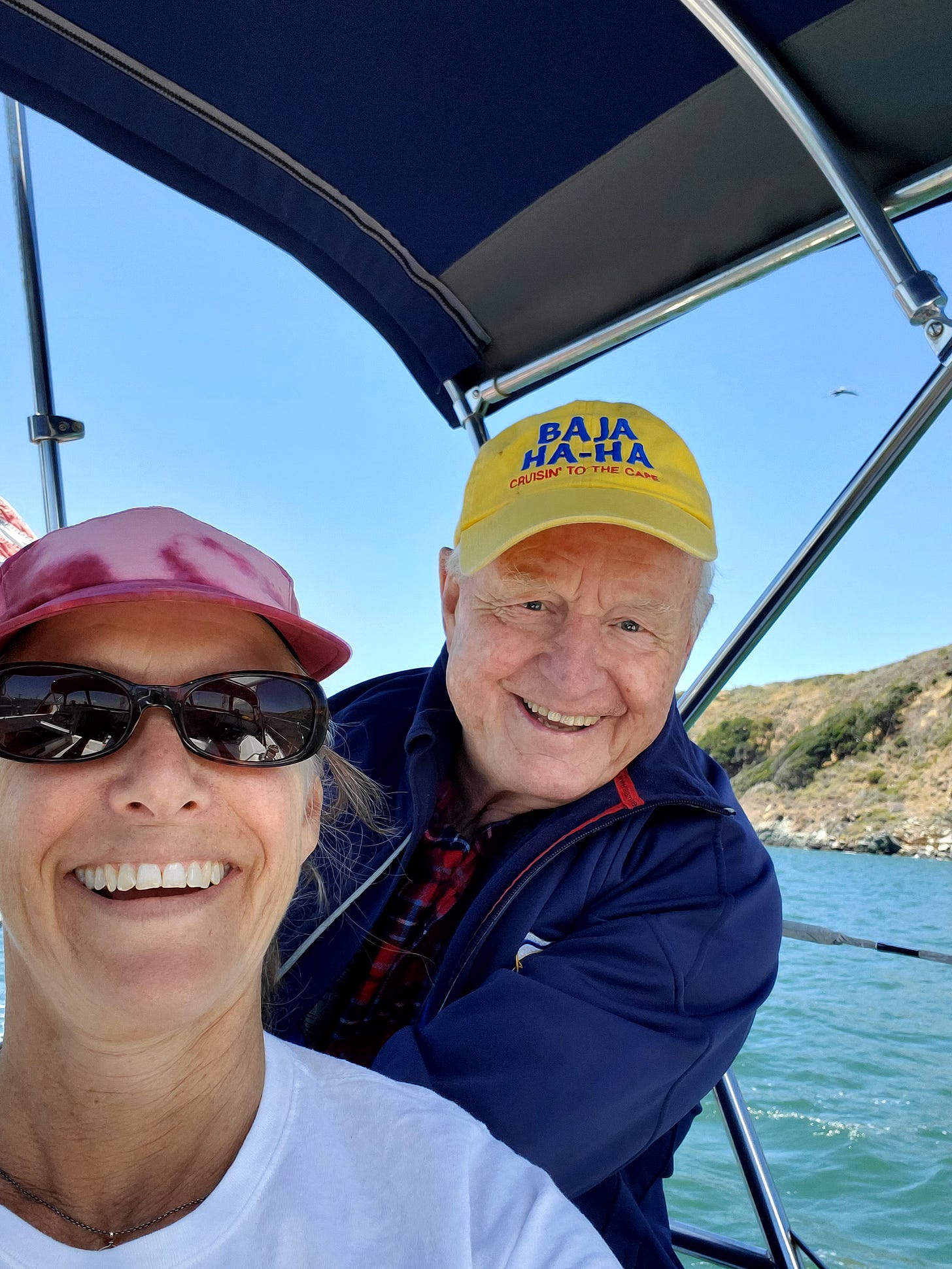An Interview with Richard Schaper
Reflections and intentions from legacy conversations.
Richard Schaper, friend, sailor, pastor, monk, Rhodes Scholar, negroni compadre, and planned giving consultant, generously shared his insights on unexpected consequences in the world of Doing Good. Talking about the legacy we wish to leave is always powerful stuff, and it seems a great way to start 2023.
My mom used to say, all wool and a yard wide. That is Richard. He can spark a meaningful conversation with anyone. From a longtime fishing family, he manages the helm easily in any wind or weather (not to mention the “gimbaled gourmet” meals and lively games of Grandma Schaper’s gin rummy after a good sail). Those who’ve been blessed to hear him at San Francisco’s Grace Cathedral, Christ Church Sausalito, or St. Stephens Episcopal Church know the way he weaves family, social justice, and literary quotes into sermons. His friendship has been one of my greatest gifts – beautiful things always come from our conversations.
I’m grateful to Richard for offering to launch interviews as part of Funder Follies.
What is your philanthropy goal and how long have you done this work?
My pursuit of knowledge has led to an extraordinary path through Oxford, Colgate, Yale, the University of Chicago, Golden Gate University, and the University of San Francisco. Growing up Lutheran, worshipping with Quakers, and zazen training with Zenki Shibayama Roshi all prepared me for nine years as a Benedictine monk at Weston Priory in Vermont. A little over 20 years ago, I decided to bring all of these experiences and perspectives to my work as a Certified Financial Planner and have worked as a planned giving officer of the Episcopal Diocese of California ever since.
Tell us about something funny, crazy or unexpected that happened in your world of doing good.
Recently I was in conversations with a legacy donor who was leaving nearly $100,000 through a planned gift. She was going on a cruise and was so excited that the luxury line where she’d booked offered free dry cleaning to all passengers. So she filled up a steamer trunk with old sweaters to be cleaned “for free” while she was aboard. Generosity comes in all shapes and sizes.
If you could change one thing in the process of fundraising, what would it be?
I tell clients to imagine that they have a million dollars to give away, and ask them to make a pie chart of who would get what (family, friends, donations … all of it). Then I ask how that compares to their estate plan. These two pie charts should be similar, but they often are not. This exercise also invites other conversations, such as recognizing that $1M in a year is not likely to be money well spent (whether to charity or a family member), but $100,000 over ten years could be.
Think of your favorite funder or donor. What makes them great?
My favorite donor is a financial planner friend and colleague. He asks every client these questions:
If you had all the money you wanted, what would you do?
If you had 10 years to live, how would you spend them?
If you died at midnight tonight, what would be your biggest regrets?
This is great because of the way it forces us to be intentional in our actions now, rather than “some day.” As Warren Buffett famously said, “Someone’s sitting in the shade today because someone planted a tree a long time ago.” And another favorite: that he'll give his children “enough money so that they would feel they could do anything, but not so much that they could do nothing.”
What is one thing you’d like all donors to know about a nonprofit’s world?
I’d like everyone to know how hard nonprofit staff work. I’m in awe of the way that nonprofits respect, honor and value their donors. It’s hard to say who receives more – the nonprofit or the donors – in charitable giving.
If you’d like to explore your own legacy with Richard, or have him work with your nonprofit, please email me – I’d love to introduce you.


